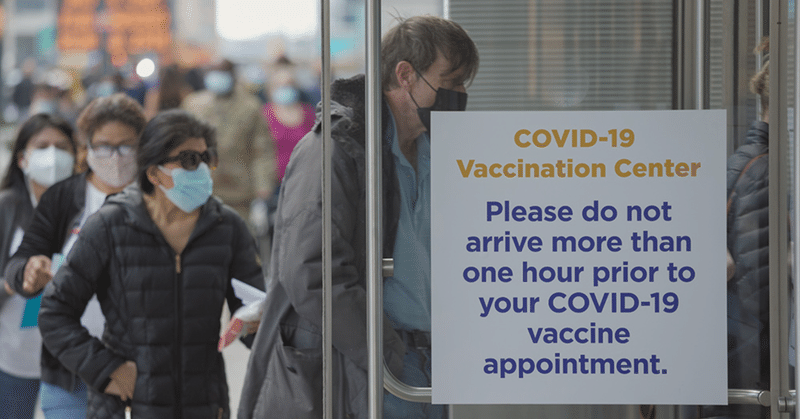
人々の覚醒が試されるワクチン接種 その138
第一線の科学者がCOVID-19のブースターショットは「適切ではない」「裏付けデータがない」と警告するレビューを発表
水曜日, 9月 15, 2021 by: Cassie B.
(Natural News) 製薬会社や一部の保健機関がCOVID-19ワクチンのブースター注射を推し進めている中、アメリカや国際的な一流科学者のグループが、現時点では一般の人々にブースター注射は必要ないという結論を出しました。
この結論は、査読付きの学術雑誌「The Lancet」に掲載されました。科学者の中には、米国食品医薬品局(FDA)や世界保健機関(WHO)の高官も含まれています。このレビューに参加した科学者の中には、ブースター注射を支持するFDAの動きへの不満から、先日FDAを去ることを発表したFDAのワクチン研究審査局のマリオン・グルーバー局長とフィリップ・クラウス副局長の2人がいました。
科学者たちは、COVID-19ワクチンの軽度の病気に対する効果は時間とともに薄れていくが、重度の病気に対する保護は、体の免疫システムのある複雑な構造や、重度の病気になるのを防ぐことができる抗体以外の体が持っている他の防御力により、持続する可能性があると述べている。
彼らはブースターショットを広く配布することは、"パンデミックの現段階では適切ではない "と結論づけています。
しかし、ワクチンによる免疫力がさらに低下したり、ワクチンによる保護を回避できる新たな亜種が出現したりした場合には、一般の人々にも追加の予防接種が必要になる可能性があることは認めています。
2回の接種でこれだけの副作用が出るのであれば、3回目以降はどうなるのでしょうか。
科学者たちは、3回目のブースト注射が不要であるというだけでなく、mRNAワクチンの2回目の投与を受けた後に起こりがちな、心臓の炎症症状である心筋炎のような副作用の可能性についても懸念を示しています。
科学者たちは、「不必要なブーストが重大な副作用を引き起こすのであれば、COVID-19ワクチンにとどまらず、ワクチンの受け入れにも影響を及ぼす可能性がある」と記しています。
科学者たちの警告は、バイデン政権が米国でCOVID-19ワクチンのブースターを一般市民に提供し始める予定の1週間前に出されたもので、ブースターの普及を支持するデータを議論するためにFDAの諮問グループが開催される予定である。
同政権は先月、米国疾病対策センターが発表した3つの研究結果を引用し、COVID-19に対するワクチンが提供する防御力が数ヶ月の間に低下することを示しました。政権の計画では、モデルナ社またはファイザー社のワクチンの2回目を接種してからわずか8ヶ月後に3回目を接種することになっています。
一方、ファイザー社がブースター・ショットを全米に配布する承認を得るためにFDAに提出したデータによると、COVID-19ワクチンのブースターの副作用は、2回目の接種後に経験するものと同様であることが示されています。これらの効果は、より若い人に影響を与えやすいものです。
これは、18歳から55歳までの約300人の参加者を対象としたブースターの第3相試験に基づいています。その研究では、ブースター注射を受けた306人にも有害事象が見つかっています。このうち44人が少なくとも1つの予期せぬ副作用を発症し、16人にはリンパ節の腫れが認められました。
他の健康専門家や科学者は、引用されたデータがあまり説得力がないという理由で、ブースター計画を激しく批判しています。英国では、政府の諮問委員会が、3回目の投与を広く行うべきかどうかを近く勧告する予定です。英国ではすでに、免疫力が著しく低下した人に3回目の投与を行っています。また、欧州医薬品庁は、ファイザー社とモデナ社のジャブのメーカーが提供するブースターのデータを検討していると言われています。
この記事の出典は以下の通りです。
CNBC.com
CNBC.com
原文:
Leading scientists publish review warning that COVID-19 booster shots are “not appropriate” and lack supporting data
Wednesday, September 15, 2021 by: Cassie B.
(Natural News) As pharmaceutical companies and some health agencies continue their push for COVID-19 vaccine booster shots, a group of leading American and international scientists have concluded that boosters are not necessary for the general public at this time.
This conclusion was published in the peer-reviewed journal The Lancet. Among the scientists are senior officials with the Food and Drug Administration (FDA) and the World Health Organization (WHO). Two of the scientists who participated in the review were the FDA’s Office of Vaccines Research and Review Director Marion Gruber and Deputy Director Philip Krause, who recently announced they would be leaving the FDA due to frustrations over the agency’s move to support booster shots.
The scientists said that although the effectiveness of COVID-19 vaccines against mild disease wanes with time, the protection they provide against severe disease could persist due to certain complexities of the body’s immune system and other defenses the body has besides antibodies that could protect people from getting seriously ill.
They concluded that widely distributing booster shots is “not appropriate at this stage in the pandemic.”
However, they did concede that booster shots could be needed for the general population should vaccine-induced immunity decline even further or new variants emerge that are capable of evading the protection afforded by the shots.
If two doses are causing so many side effects, what could happen after three?
Not only is the third/booster shot unnecessary, but the scientists expressed concerns about the potential for side effects like the heart inflammation condition myocarditis, which tends to be more common after people have received their second dose of an mRNA vaccine.
They wrote: “If unnecessary boosting causes significant adverse reactions, there could be implications for vaccine acceptance that go beyond COVID-19 vaccines.”
The scientists’ warning comes a week before the Biden administration plans to start offering COVID-19 vaccine boosters to the general public in the U.S. An advisory group from the FDA will be holding a meeting to discuss data supporting the widespread use of boosters.
Last month, the administration cited a trio of studies released by the Centers for Disease Control and Prevention demonstrating that the protection offered by the vaccines against COVID-19 decreased over a period of several months. The administration’s plan is calling for people to get a third dose just eight months after receiving their second shot of either the Moderna or Pfizer vaccine.
Meanwhile, data submitted by Pfizer to the FDA as it seeks to gain approval for distributing its booster shots across the U.S. shows that the side effects of COVID-19 vaccine boosters are similar to those experienced following the second dose. These effects are more likely to affect younger people.
This is based on a phase three study of boosters that involved around 300 participants aged 18 to 55. Their studies have also found adverse events among 306 people who received booster shots. Forty-four of these people developed at least one unexpected side effect; swelling of the lymph nodes was found in 16 of the participants.
Other health experts and scientists have been heavily criticizing booster plans on the grounds that the data cited was not very compelling. In the UK, a government advisory panel plans to recommend whether or not a third dose should be widely administered soon; the country is already offering people with severely weakened immune systems a third dose. The European Medicines Agency is also reportedly reviewing booster data provided by the makers of the Pfizer and Moderna jabs.
Sources for this article include:
CNBC.com
CNBC.com
この記事が気に入ったらサポートをしてみませんか?
